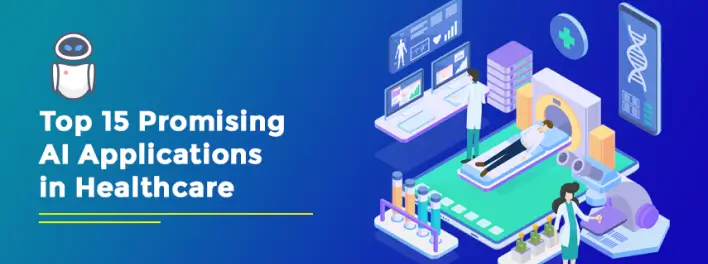As the leading AI development company, we rely on five interoperable, operational pillars to drive AI transformation at scale.
As a leading AI software company, we help companies implement AI into business processes strategically and effectively.
Get expert guidance to implement tailored AI-driven initiatives.
Unlock the power of AI-infused development and supercharge productivity.
Deliver stunning experiences with ultra-realistic visuals and interfaces.
Ensure optimal functioning and performance of your custom AI systems.
Disrupt the DevOps pipeline with AI and improve agility, efficiency, and reliability.
Design interpretable AI systems that prioritize data protection, privacy, and ethics.
Image recognition
Object tracking
Face recognition
Video analytics
Video recognition
Object detection
Enterprise AI Development
AI as a Service
Infrastructure Support
Natural Language Processing
Research & Development
Deep Learning
Supervised/Unsupervised Learning
Model Fine Tuning
Feature Engineering
Model Engineering
Chat GPT-4 integrations
Prompt Engineers
AI Chatbot Development
Voice Interfaces and Speech Recognition
Contextual Understanding
Model Training and Optimization
Multimedia Analytics
Predictive analytics
Pattern recognition
Cluster analysis
Information retrieval
Strategy Development
Generative AI integrations
Generative AI development
Generative AI consulting
Cognitive Computing
Emotional Intelligence
Industry-Specific Gen AI Solutions
At Mobisoft, we recognize unique AI transformation needs and persistent silos of diverse business areas. Our mission is to assist you in accelerating your smart growth journey.
Power your business with AI today!Implement AI in your core business functions with expert advice.
Detect and identify objects, and classify images for quick decision-making.
Train AI models on your diverse business data and customize LLMs.
Incorporate automated processes and workflows using RPA and AI technologies.
Use AI to forecast trends, behaviors, and outcomes based on data analysis.
Use AI-generated content or data for innovative applications.
Build custom AI solutions aligned with your objectives and operational requirements.
Develop custom ML models for predictive analytics and pattern recognition.
Maximize the use of your data with NLP and deliver human-centric experiences.
Create smart conversational AI interfaces for improved service and support.
Deliver personalized content or product suggestions based on user behavior.
Helping you upgrade core operations with greater flexibility by leveraging advanced AI tools.
Bring diverse tech expertise, efficiency, and innovation to your development operations with the help of our AI professionals.
Hire AI Developers Today!Learn how we helped conglomerates, enterprises, and visionary startups bring the power of AI into their workflows, products, and services.
Enhanced app experience of a major retail chain with AI-powered personalized suggestions.
Helped a large retail store network in the USA to unleash the power of AI-generated product descriptions.
Empowered the team of a global brand to simplify data queries using LLMs to Query for quick decisions.
Redefined vehicle maintenance and damage detection with precision using an AI-enabled smart system.
Turning AI aspirations into lasting business impacts for diverse industries with our Artificial Intelligence services.
Being a trusted Artificial Intelligence company, we follow a precise process to make your business operations smart and secure.
Set your AI goals and address obstacles to leverage its potential.
Use a framework to assess “achievability” and ROI of AI use cases.
Evaluate the robustness of AI models and perform a risk analysis.
Pick your process-related use cases and select carefully.
Identify the resources, timelines, and estimated costs associated with AI implementation.



Being a leading AI development company, we are proficient in a variety of programming languages and frameworks commonly used in our AI development services such as Python, Tensorflow, PyTorch, and more. Please visit "AI Techstack" for more info.
Sure. Our process typically involves the following to ensure the quality and relevance of the data used in data science and AI solutions:
This meticulous process ensures that the data fed into our AI models is well-prepared for effective training and prediction.
Our approach to model selection and optimization is tailored to the unique characteristics of each use case. However, we follow a systematic process as mentioned hereunder:
Yes, we have successfully integrated AI into similar systems, overcoming challenges such as data compatibility, system integration complexities, and ensuring seamless collaboration with existing software infrastructure. As a leading Artificial Intelligence development company, we are well-equipped to overcome these challenges and provide end-to-end AI integration services for various use cases.
The techniques we use depend on the use case and include distributed processing, data partitioning, and sharding, as well as cloud-based storage. By employing these techniques, we ensure that our AI applications can efficiently handle and process large volumes of data, facilitating scalable and high-performance solutions.
At Mobisoft, our approach to building and training neural networks is characterized by a combination of AI expertise and best practices. This includes careful selection or customization of neural network architectures, data augmentation, transfer learning, regularization techniques, and optimization algorithms. This comprehensive strategy ensures the effectiveness and optimal performance of our neural networks.
We achieve seamless integration by developing APIs, adopting a microservices architecture, utilizing containerization technologies, and conducting thorough compatibility testing. This approach ensures the smooth incorporation of AI-driven business solutions into existing workflows and infrastructure, minimizing disruptions.
To overcome challenges related to data quality and availability, we implement robust data preprocessing techniques, conduct thorough exploratory data analysis, and, when necessary, leverage data imputation methods. This ensures that our models are trained on high-quality, reliable datasets.
Being a trusted Artificial Intelligence development company in the USA and India, we prioritize compliance by adhering to regulatory standards and industry best practices in AI development. Our technique involves thorough documentation, regular audits, and the implementation of ethical guidelines. We also ensure that our models align with data privacy regulations and industry-specific standards, fostering trust and accountability in our AI solutions.
Yes, testing Generative AI applications requires specialized considerations. We focus on assessing the diversity and quality of generated outputs, conducting stress testing to evaluate model robustness, and implementing validation techniques specific to the generative nature of the models. Additionally, we employ domain-specific evaluation metrics to ensure the effectiveness and reliability of Generative AI applications in diverse scenarios.
We prioritize ethical considerations and bias mitigation in Generative AI models by implementing fairness-aware training, diversifying training datasets, and conducting thorough bias assessments. Additionally, we follow ethical guidelines and stay informed about emerging best practices to ensure responsible and unbiased AI development.
In previous projects, we have implemented strategies like balanced dataset sampling, fairness-aware training, and bias assessments using metrics like disparate impact analysis. These measures ensure a proactive approach to mitigating bias in AI models, promoting fairness and inclusivity.
Generative AI models thrive on diverse datasets, including but not limited to images, text, audio, and video. The suitability depends on the specific task; for instance, images for GANs (Generative Adversarial Networks), text for language models, and sequences for sequence-to-sequence generative models.
Yes, Generative AI models can be seamlessly integrated into existing software systems. We achieve this through APIs, microservices, or containerization, ensuring compatibility with various software architectures. This facilitates the incorporation of Generative AI capabilities without significant disruption to existing systems.
Privacy is a crucial consideration, and we address concerns by implementing privacy-preserving techniques such as differential privacy, anonymization, and secure data handling. Additionally, we adhere to data protection regulations and industry-specific privacy standards to ensure the responsible and secure use of Generative AI models.
The expected cost varies based on project complexity, data requirements, and deployment scale. We provide detailed cost estimates that encompass development, deployment, and ongoing maintenance, ensuring transparency and alignment with client budget considerations. Contact us to know your AI implementation cost.
The 10-20-70 rule in AI refers to a general guideline for allocating resources during the development of AI models. The rule suggests that in a typical AI project:





